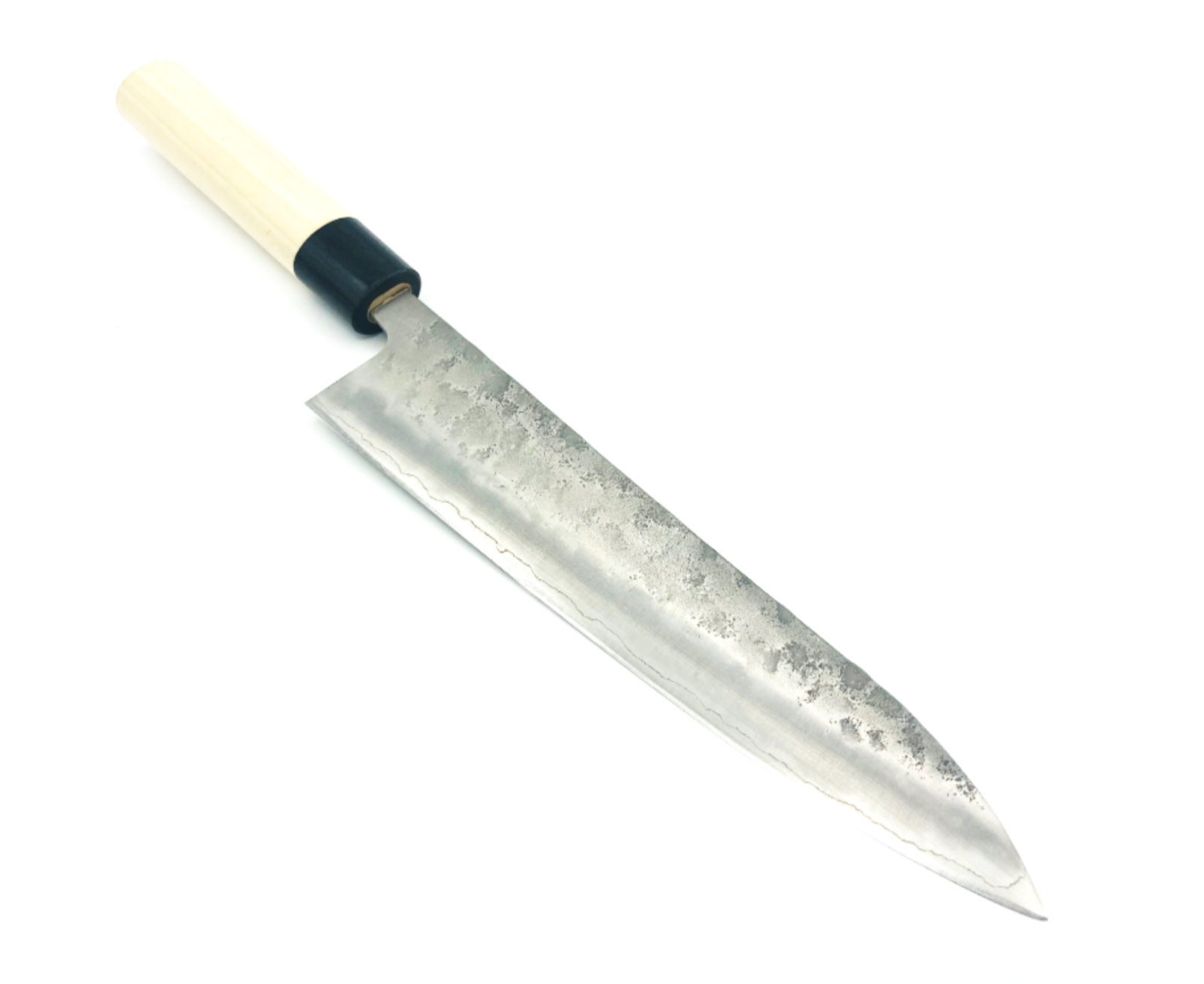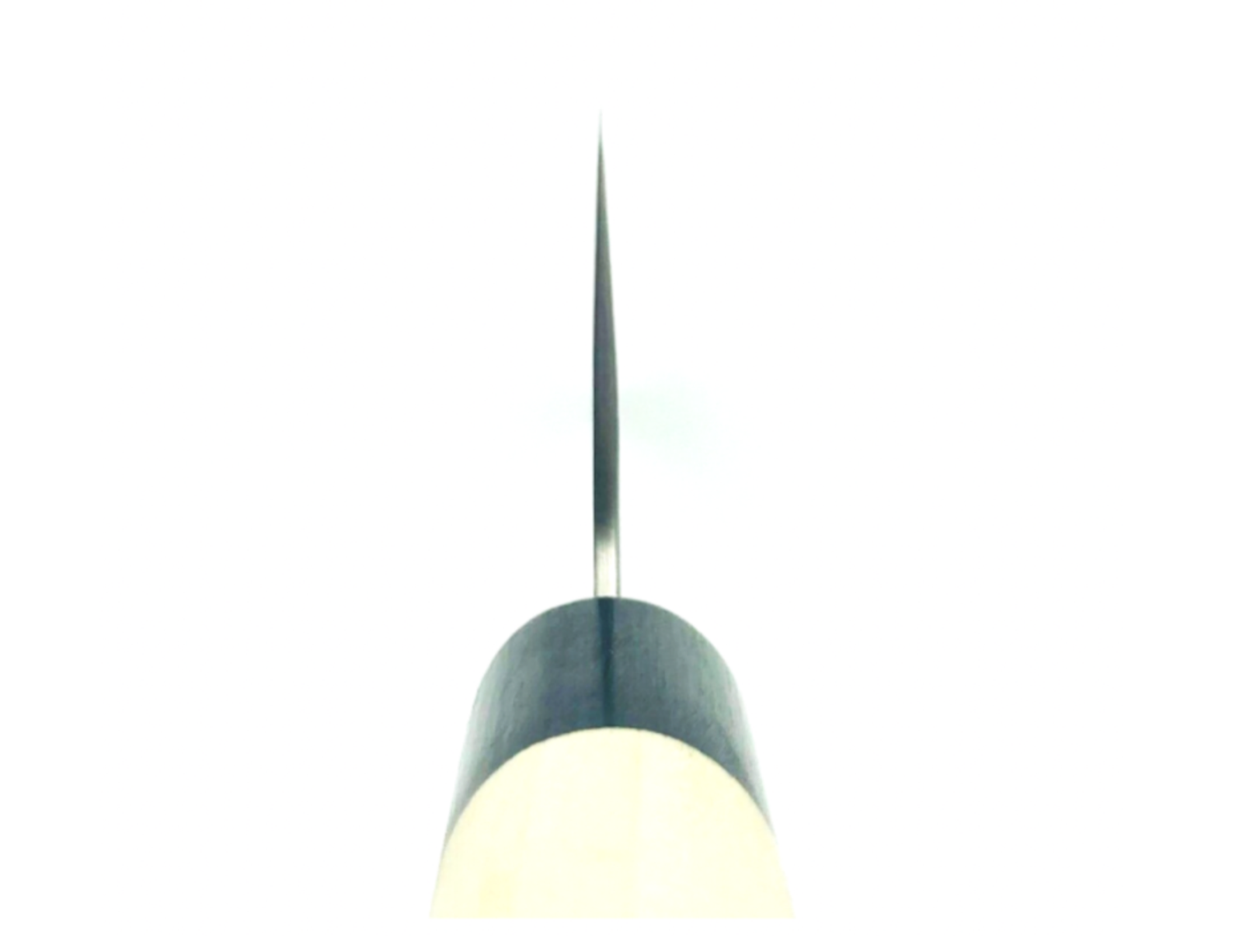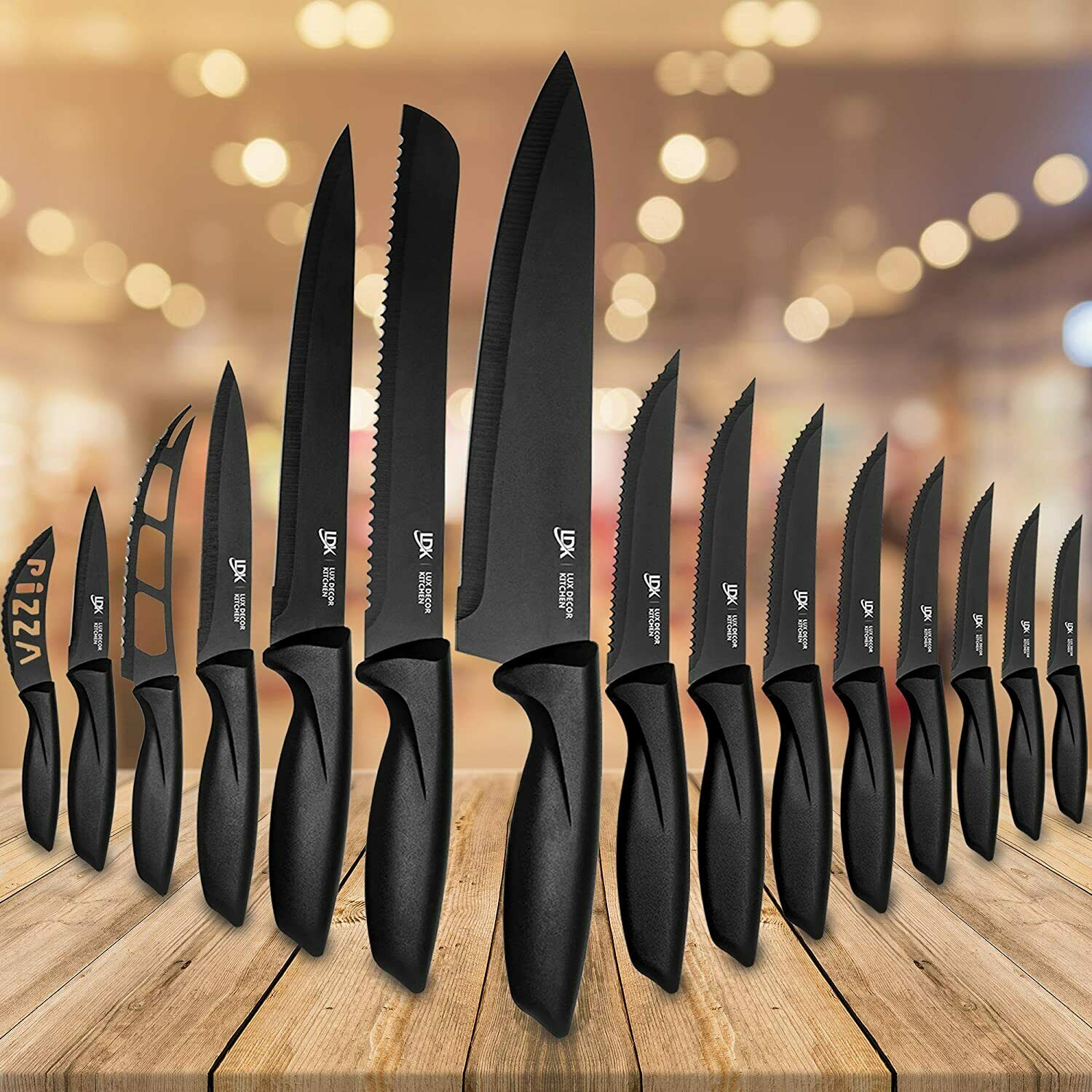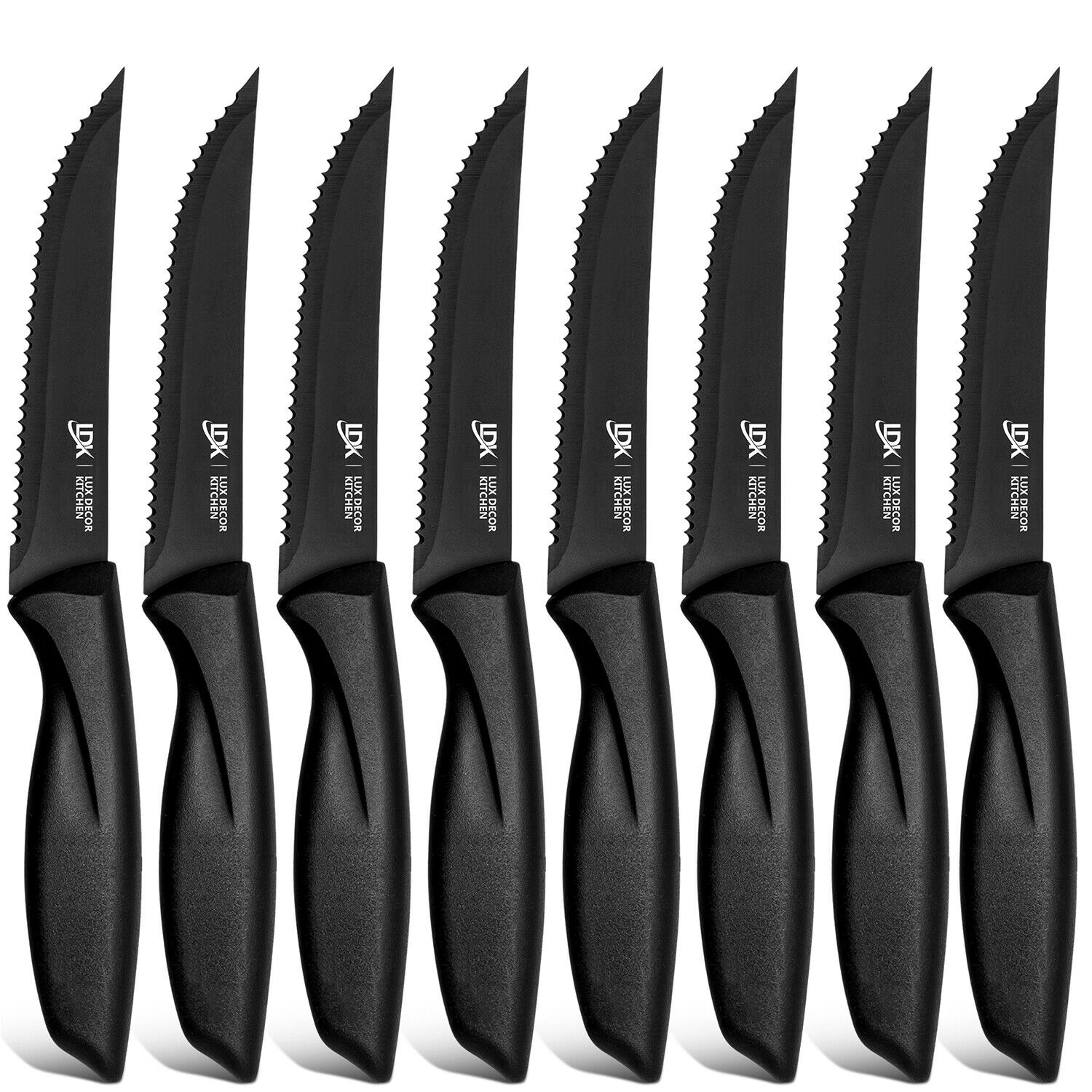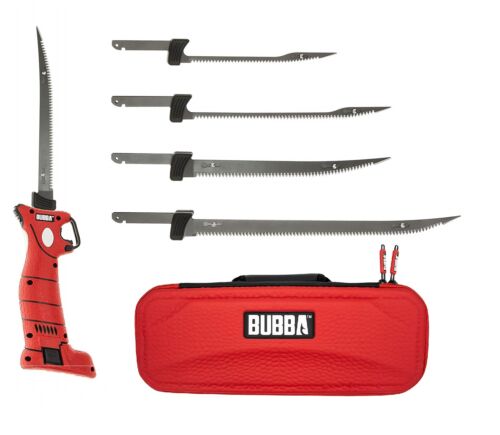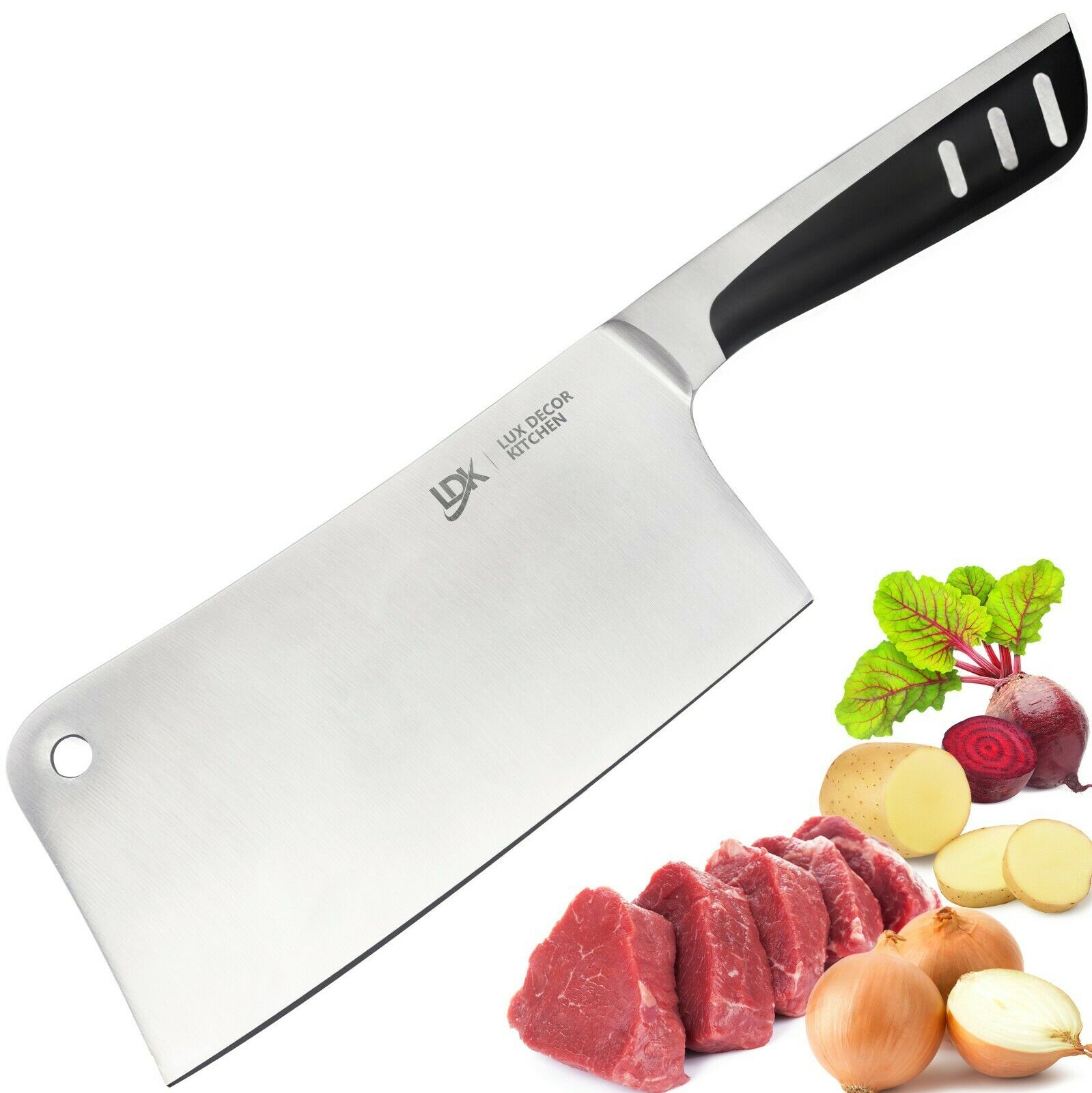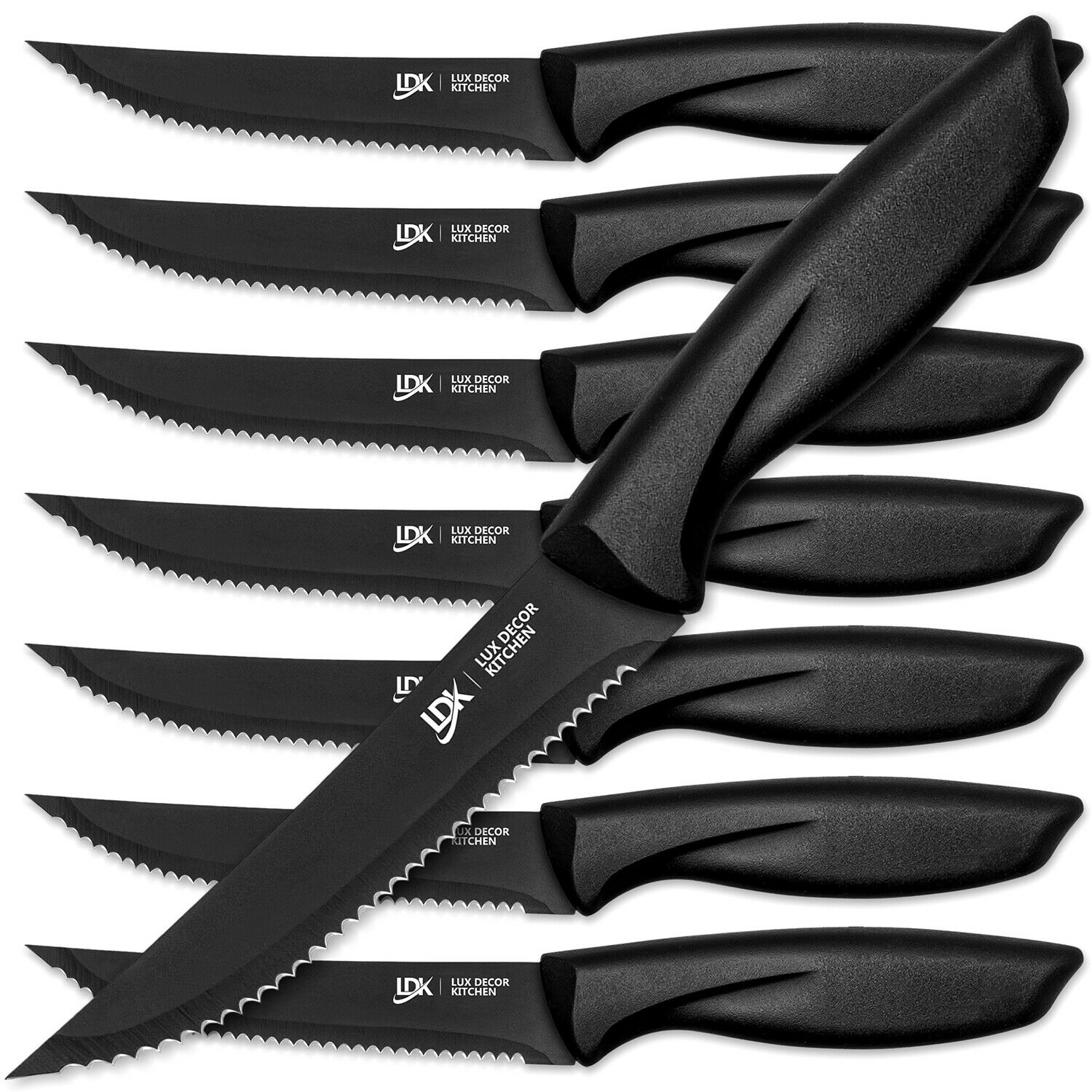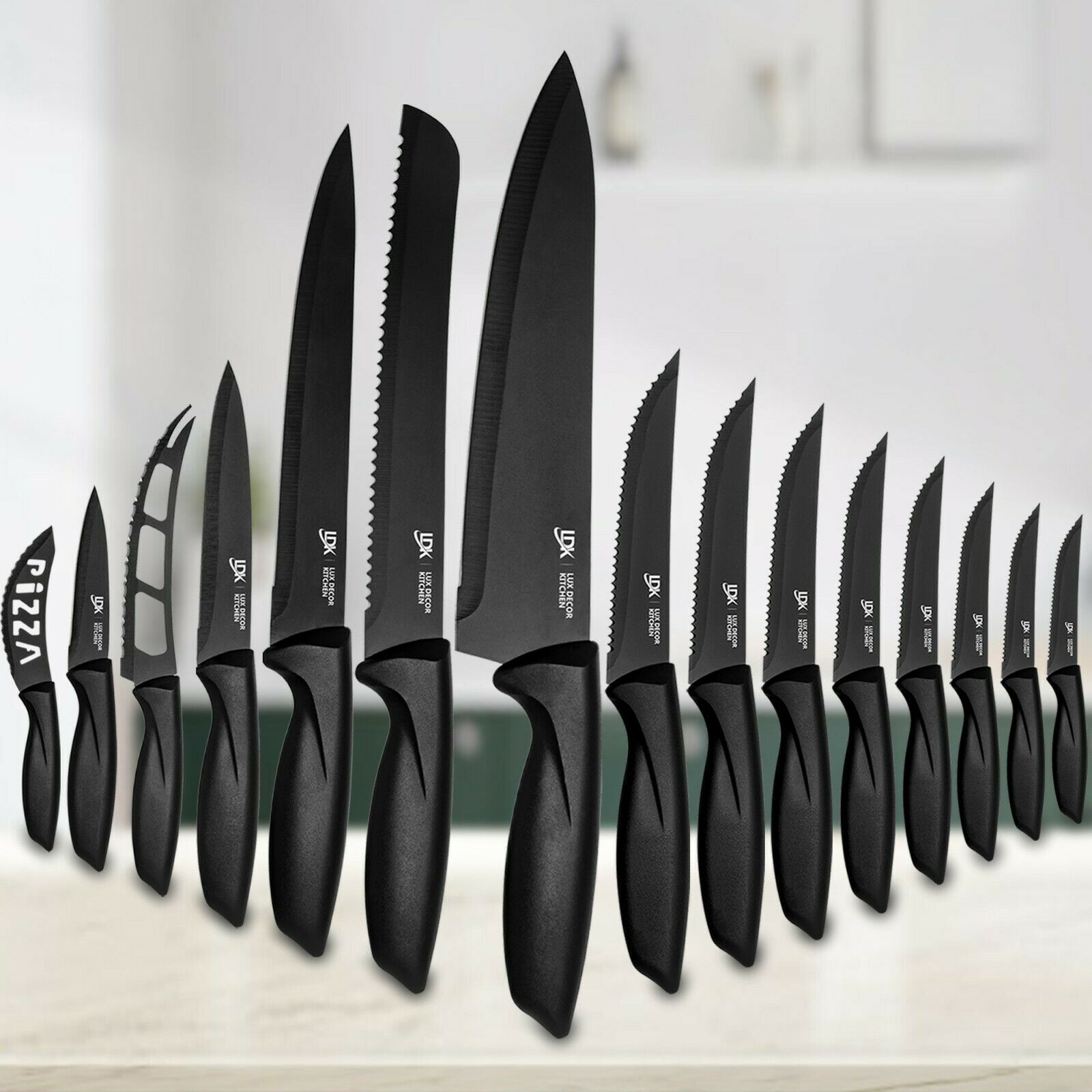-40%
Japanese Chef knives Tokushu Silver 3 Ginsan Nashiji Wa Gyuto 210mm Japan *F/S
$ 78.67
- Description
- Size Guide
Description
"Tokushu" is our house brand, and roughly translates to "special" or "unique". We hunt for the best knives we can find, and then sharpen them ourselves, by hand on Japanese Whetstones. An experienced sharpener can coax a phenomenal edge out of a high quality knife, but unfortunately the majority of people have not experienced a high quality knife or an exceptional edge. The litmus test is, have you experienced a strong emotion when using a knife for the first time? Shock, joy, euphoria, and fear are all common reactions to using an exceptional hand crafted tool. It is common for Japanese Knife makers to say they put "their spirits" into their knives, akin to sharing their soul, or a piece of themself into the tool. It may not seem to make much sense, but it does when you experience it. It is a shame that most "Japanese" knives are actually frauds made in another country out of inferior steel. This tragedy is why we started our company, to reconnect people with the emotional experience using a well made tool which can be a lifelong companion.Silver #3 aka Ginsan Steel is an under appreciated steel in most of the world. It is very popular in Japan because it is a stainless steel that feels and sharpness like carbon steel. It also benefits from forging and traditional techniques can be used to make some exceptional knives. We hope to share the secret with as many people as possible, so we can reduce number of unsuspecting victims buying terrible knives with great marketing campaigns. I am not in marketing, I sharpen knives, but please read my reviews. I believe ones work and reputation should speak for itself.
Japanese Knives are much harder than western style knives. They are thinner, take steeper angles, are sharper and have excellent edge retention. The trade off is that they are more delicate. Hard steel chips instead of bending like on a German steel knife, so appropriate cutting surfaces like a plastic or wood cutting board are important. Also, do not use these knives to chop bones or frozen food. They can chip. Chips can be repaired by a sharpener, but nobody wants or needs to deal with them. Treating a Japanese knife as a sharp delicate tool will provide years of satisfying use, with minimal maintenance.
Knife: 210mm 8.2 inch Gyuto
Edge: Double. 50 / 50
Construction: San Mai (Hard steel core sandwiched by soft steel outside layer)
Steel: Silver #3 or Ginsan
HRC: ~ 61
Handle: Magnolia and black ferrule
